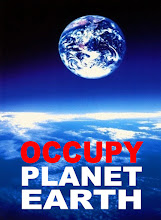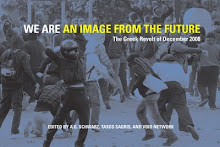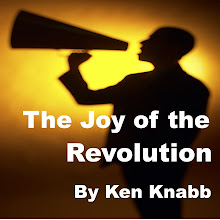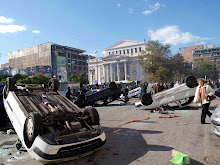Statement by
the Occupied Athens Law School
The political and financial spectacle has now lost its confidence. Its acts are entirely convulsive. The government of “emergency” that has taken over the maintenance of social cohesion is failing in conserving the labour, and at the same time the consumption power of the population. The new measures, with which the state aims to secure the survival of the greek nation in the international financial world, lead to a complete suspension of payments in the world of work. The lowering of the minimum wage, now also in paper, comes in harmony with the full suspension of every form of direct or social wage.
Every cost of our reproduction vanishes. The health structures, the educational spaces, the “welfare” benefits and anything making us productive in the dominant system are now a thing of the past. After squeezing everything out of us, they now throw us straight into hunger and impoverishment.
The securing of the abolition of any form of wage, on a legal level, takes place via the creation of a “special, closed off account”. In this way, the greek state ensures that the monetary stock will be used exclusively for the survival of capital, at the expense of our own lives, even. The weight of the debt (not of the state, but of that which is inextricably contained in the relationship of capital) is swinging over our heads, threatening to fall on them and to extinguish us.
The myth of the debt. The dominant patriotic discourse promotes the idea of the greek debt, placing it as a transnational matter. It creates the impression that some stateless loan sharks have targeted the greek state and our “good government” does anything it can to save us, or, on the other hand, that it aims to extinguish us, itself comprising part of the international monetary capital.
Against this false nationalist conception, the debt is a result of, and indistinguishable part of the political economy, a fact that the bosses know only too well. The economy is based upon the creation of shortages, upon the creation of new fields of scarcities (that is, the destructive creation, with negative, always, long-term consequences). The debt and guilt-laden will expand and will dominate society for as long as there exists property, the routine of consumption, exchange and money.
When we say that the crisis is structural and systemic we mean that the structures of the political economy have reached an end, that their very core has come under attack — that is, the process of value production. It is clear that for capital, we are spareable (see the sky-rocketing unemployment figures) and that at this point, the reproduction of labour force is merely an obstacle in the process of capital accumulation. The monetary-debt crisis, that is, the replacement of wages with loans, and the inability of issuing of loans, lead the system into a vicious circle of unsustainability. This happens, because it places under questioning the value of work itself, that is, the same relationship through which those from below would fit into the roles of the system.
Should we then head for socialism and “popular economies”? All kinds of union professionals and wannabe-popular leaders cultivate their own illusions and a political exit within the system and the current political economy. They might talk of the nationalisation of banks, they might take the form of the rejuvenation of rational liberalism. Oftentimes, they even take the form of recuperation and alternative “revolutionary spirit”. Other times, we hear about green development, ecological decentralisation, direct democracy and the fetishism of political forms.
While the market itself, and the state intervention fail to give any prospects whatsoever, political spectacle continues to promote all sorts of products such as popular economy and authority from state socialisms. The mythologies of the various dictatorships of the proletariat, survive at the same time when the masses of those excluded from production, from institutions, the unemployed, all fail to provide any reliable clientele for political parties and their syndicates. The reactionary political position of state capitalisms has been replaced by a void trade of ideology.
Social war knows no borders. Some, amidst the crisis, see a re-contextualisation/re-drawing of national enclosures. The national body and the various racists seem to see an opportunity to target migrants, to make attacks and pogroms and to promote the institutional racism of the greek state. For them, their resistance is painted in national colours; they struggle as greeks, not as enemies of exploitation and the social repression they face.
We consciously chose sides, believing that any presence of any national symbol or flag belongs to the camp of the enemy, and we are willing to fight it by all means possible. Because the nazis of the golden dawn, the autonomous nationalists and the other fascists promote a pure national community as a solution, the precautionary attacks against them and the solidarity to the migrants is a necessary condition for any radical attempt.
The only solution is social revolution. Against all the above, we propose social revolution, which we consider the only solution in order to have a life, not bare survival. This means, to rise up against any financial and political institution. It requires, through the route of revolt, to take measures such as the abolition of the state, of property and any sort of measurability, the family, the nation, exchange and social genders. In order for us to extend gratuitness and freedom across the entire social life.
This is what revolution means! Bringing to this direction any struggle centred on wage demands; any self-organised structure and assembly, especially at a conjuncture, as the present one, when the political-governmental form of the systemic crisis can lead to a social explosion.
Demonstration, 6 pm, Propylea.
Open assembly at the occupied Law School immediately after the demonstration
Law School Occupation, 9/2/12
Κάθε κόστος αναπαραγωγής μας εξαφανίζεται. Οι υποδομές υγείας, οι εκπαιδευτικοί χώροι, τα επιδόματα ‘’πρόνοιας’’ και ό, τι μας καθιστά αποδοτικούς στο κυρίαρχο σύστημα αποτελούνε πλέον παρελθόν. Αφού μας ξεζουμίσανε, τώρα μας πετάνε στην πείνα και την εξαθλίωση.
Η διασφάλιση της κατάργησης κάθε μορφής μισθού σε νομικό επίπεδο, γίνεται μέσω της δημιουργίας ενός ‘’ειδικού κλειστού λογαριασμού’’. Με αυτόν τον τρόπο, το ελληνικό κράτος διασφαλίζει ότι το χρηματικό απόθεμα θα κυλάει μόνο για την επιβίωση του κεφαλαίου, με τίμημα ακόμα και τη ίδια μας τη ζωή. Η βαρύτητα του χρέους (όχι του κράτους, αλλά αυτό που εγγενώς εμπεριέχεται στη σχέση κεφάλαιο ) απειλεί να πέσει στο κεφάλι μας και να μας εξοντώσει.
Ο μύθος του χρέους. Η κυρίαρχη πατριωτική αφήγηση προβληματικοποιεί το ελληνικό χρέος, θέτοντάς το σαν διακρατικό ζήτημα. Δημιουργεί την αίσθηση ότι κάποιοι απάτριδες τοκογλύφοι έχουν στοχοποιήσει το ελληνικό κράτος και η ‘’καλή κυβέρνηση’’ κάνει το παν για να μας σώσει ή πως έχει ως στόχο να μας προδώσει, όντας και αυτή κομμάτι του διεθνούς χρηματιστικού κεφαλαίου.
Κόντρα σε αυτή τη λανθάνουσα εθνικιστική αντίληψη, το χρέος είναι απόρροια και αναπόσπαστο στοιχείο της πολιτικής οικονομίας, και αυτό τα αφεντικά μας το ξέρουν πολύ καλά. Η οικονομία στηρίζεται στη δημιουργία ελλείψεων, στη δημιουργία νέων πεδίων σπανιότητας (δηλαδή καταστροφική δημιουργία με μακροπρόθεσμες, αρνητικές πάντα, συνέπειες. Το χρέος και οι ενοχικές υποχρεώσεις θα επεκτείνονται και θα δεσπόζουν την κοινωνία, όσο υπάρχει η ιδιοκτησία, η ρουτίνα της κατανάλωσης, η ανταλλαγή και το χρήμα.
‘Όταν λέμε ότι η κρίση είναι δομική και συστημική εννοούμε ότι οι δομές της πολιτικής οικονομίας έχουν φτάσει στο τέλμα, έχει χτυπηθεί ο ίδιος ο πυρήνας τους, δηλαδή η διαδικασία παραγωγής αξίας. Είναι ξεκάθαρο πως για το κεφάλαιο περισσεύουμε (εκτοξευμένα ποσοστά ανεργίας), και πως πλέον η αναπαραγωγή της εργατικής δύναμης είναι απλά εμπόδιο στη διαδικασία συσσώρευσης. Η χρηματοπιστωτική κρίση, δηλαδή η αντικατάσταση των μισθών με δάνεια και η μη δυνατότητα παροχής δανείων, οδηγούν το σύστημα σε ένα φαύλο κύκλο μη βιωσιμότητας. Αυτό συμβαίνει γιατί θέτει σε αμφισβήτηση την ίδια την αξία της εργασίας, δηλαδή την ίδια τη σχέση μέσω της οποίας οι από κάτω εντάσσονταν στους ρόλους του συστήματος
Μήπως να το ρίξουμε στο σοσιαλισμό και τη ‘’λαΪκή οικονομία’’; Οι κάθε λογής εργατοπατέρες και λαΪκοί ηγέτες παράγουν τις δικές τους αυταπάτες και μια πολιτική διέξοδο εντός του συστήματος και της πολιτικής οικονομίας. Μπορεί να λένε για κρατικοποίηση τραπεζών, να παίρνουν τη μορφή της αναγέννησης του ορθολογικού φιλελευθερισμού. Ενίοτε παίρνουν τις μορφές της ενσωμάτωσης και της εναλλακτικής ‘’ επαναστατικότητας’. Άλλοτε, ακούμε για πράσινη ανάπτυξη, οικολογική αποκέντρωση, άμεση δημοκρατία για το φετιχισμό της πολιτικής μορφής.
Ενώ η ίδια η αγορά και η κρατική παρέμβαση αδυνατούν να δώσουν οποιαδήποτε προοπτική, το πολιτικό θέαμα εξακολουθεί να λανσάρει διάφορα προΪόντα όπως λαΪκή οικονομία και εξουσία και κρατικούς σοσιαλισμούς. Οι μυθολογίες των διαφόρων δικτατοριών του προλεταριάτου, επιζούν την ίδια εποχή που το πλήθος των αποκλεισμένων από την παραγωγή και τους θεσμούς και των ανέργων δεν μπορεί να αποτελέσει μια δυνατή πελατεία στα κόμματα και τα συνδικάτα τους. Την αντιδραστική πολιτική θέση των κρατιστικών επαναστάσεων έχει διαδεχθεί ένα κενό εμπόριο ιδεολογίας.
Ο κοινωνικός πόλεμος δεν έχει σύνορα. Κάποιοι μέσα στη κρίση, βλέπουν μια επανανοηματοδότηση-επαναχάραξη των εθνικών περιφράξεων. Ο εθνικός κορμός και οι δίάφοροι ρατσιστές φαίνεται πως βρίσκουν ευκαιρία να στοχοποιούν τους μετανάστες , να κάνουν επιθέσεις και πογκρόμ και να σιγοντάρουν το θεσμικό ρατσισμό του ελληνικού κράτους. Γι’ αυτούς η αντίστασή τους έχει εθνικά χρώματα και μάχονται ως Έλληνες και όχι ως εχθροί της εκμετάλλευσης και της κοινωνικής καταπίεσης που βιώνουν.
Εμείς διαλέγουμε συνειδητά στρατόπεδο θεωρώντας πως κάθε παρουσία εθνικού συμβόλου και σημαίας ανήκουν στο πεδίο του εχθρού και είμαστε διατεθειμένοι να το πολεμήσουμε με κάθε μέσο. Επειδή οι χρυσαυγίτες, οι αυτόνομοι εθνικιστές και οι υπόλοιποι φασίστες προβάλλουν μία καθαρή εθνική κοινότητα ως λύση, οι προληπτικές επιθέσεις εναντίον τους και η αλληλεγγύη στους μετανάστες είναι απαραίτητη προϋπόθεση για οποιοδήποτε ριζοσπαστικό εγχείρημα.
Μόνη λύση η κοινωνική επανάσταση. Σε όλα αυτά έχουμε να αντιπροτείνουμε την κοινωνική επανάσταση την οποία θεωρούμε ως μόνη λύση για να έχουμε ζωή και όχι επιβίωση. Αυτό σημαίνει να εξεγερθούμε απέναντι σε κάθε οικονομικό και πολιτικό θεσμό. Απαιτεί, μέσα στη πορεία της εξέγερσης, να λάβουμε μέτρα όπως κατάργηση του κράτους, της ιδιοκτησίας και κάθε είδους μετρησιμότητας, της οικογένειας, του έθνους, της ανταλλαγής και του κοινωνικού φύλου. Ώστε να επεκτείνουμε τη χαριστικότητα και την ελευθερία σε κάθε σημείο του κοινωνικού βίου.
Αυτό σημαίνει επανάσταση! Φέρνοντας σε αυτή τη κατεύθυνση κάθε διεκδικητικό αγώνα για το μισθό, κάθε αυτοοργανωμένη δομή και συνέλευση , ειδικά σε μια συγκυρία, όπως τώρα, που η πολιτική-κυβερνητική μορφή της συστημικής κρίσης μπορεί να οδηγήσει σε κοινωνική έκρηξη.

![VOID MIRROR [theory, info, global movement news]](https://blogger.googleusercontent.com/img/b/R29vZ2xl/AVvXsEiaLvlWRUHJgycn3xI3d8kfRy7JwD48VBDrUl4osdfXHWblUYSZrv_kakq0n4EYTxCnB4tBlqW3F3tCE7gdirCT2h7mjA2beX6e1tn4Sc5EFXsCxV1deIOXpLuwgjsv0Kn_ZURwlQ/s220/CeluBkCWQAAFgxB.jpg)















![READ TEXT ONLINE: WE ARE AN IMAGE FROM THE FUTURE [THE GREEK REVOLT OF DECEMBER 2008 ]](https://blogger.googleusercontent.com/img/b/R29vZ2xl/AVvXsEiSh9LwgbFVtp1LmXgtGFBHJd6XMGn7D1zhacFhu1rKb-ILRy-vEo9bDOQcqA3AMYp6grDF0h3lAZHW7HIPmPU-THY1GOBDE4NLSh_8amqgL7AnNLemp0tFOeKe6emqrfJk-1hPUw/s220/510T1GQ26KL._BO2%252C204%252C203%252C200_PIsitb-sticker-arrow-click%252CTopRight%252C35%252C-76_AA300_SH20_OU01_.jpg)





![THESES ON DRUGS [GREEK LANGUAGE]](https://blogger.googleusercontent.com/img/b/R29vZ2xl/AVvXsEiXbps2DJgHZ7MbN1LbTE9wlP-wedJMrC7UgMKj9u_WiSqzE7AGqKK_MDpdo8uCncOr1M_ij29TOenU19hiZtaaVytO4HrSAykfPr-TXsnXO6mfjCALzB10X27jPRFOydxBKUlk8g/s220/%25CE%2596%25CE%2597%25CE%25A4%25CE%2597%25CE%259C%25CE%2591+%25CE%25A4%25CE%25A9%25CE%259D+%25CE%259D%25CE%2591%25CE%25A1%25CE%259A%25CE%25A9%25CE%25A4%25CE%2599%25CE%259A%25CE%25A9%25CE%259D.jpg)














![GLOBAL EYE [LONDON section of VOID NETWORK]](http://1.bp.blogspot.com/_vSyk6SJoF1M/Sfr7KhauTxI/AAAAAAAACmM/nCtI6Kzenbg/S220/global+eye+photo.jpg)



















No comments:
Post a Comment